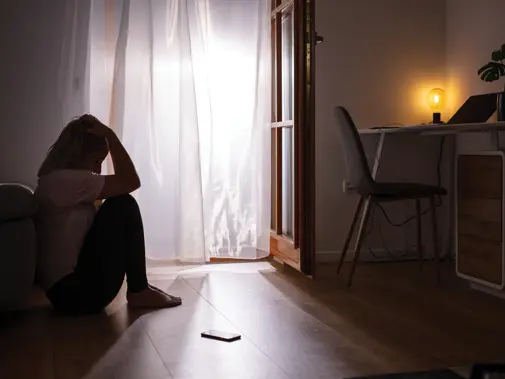As co-chairs of the BMA’s WAM (Women in Academic Medicine) group, we mark White Ribbon Day with a renewed sense of urgency and responsibility. This year’s theme, We Speak Up, calls us to raise our voices to create a world in which women and girls are safe, equal and respected.
The BMA’s Sexism and sexual violence towards medical students report, conducted in collaboration with Surviving in Scrubs, lays bare the scale and severity of sexism and sexual violence faced by medical students across the UK. The findings are deeply troubling, but they also serve as a powerful call to action for all of us in academic medicine. Sexism and sexual violence remain widespread in medical education, deeply embedded in academic culture and clinical training.
These issues shape students’ daily experiences and influence the future norms of the profession. It’s time for all of us – educators, institutions, and students – to challenge this culture, speak out against abuse, and actively work toward creating safe, inclusive learning environments.
The stark reality: what the report reveals
Drawing on nearly a thousand student responses, the report reveals that sexism and sexual violence remain pervasive in medical education. This behaviour occurs across all major groups with which students interact – students, doctors, and patients. Among cases where the perpetrator’s gender was disclosed, the vast majority were men. The findings of the report are extremely concerning: 41% of female and 19% of male respondents reported being targets of sexual harassment or assault at university, with 37 cases of rape or assault by penetration, 85 cases of sexual assault, and 43 incidents of drink spiking documented. Behind each statistic is a student whose education, wellbeing, and future have been compromised.
These are not just breaches of professionalism—they are serious criminal acts. Yet the report also makes it clear that institutional responses are failing. Sixty per cent of respondents did not trust their medical school to handle sexual harassment or sexual assault complaints effectively. Among those who reported, most were dissatisfied with the response, while two-thirds chose not to report at all, often believing nothing would change. Incidents involving sexual offences were most likely to be committed by other students. It is alarming that victims are often compelled to continue learning alongside those who harmed them, perpetuating distress, impacting their education and undermining their safety.
Sexual harassment also thrives on power imbalances. Respondents described instances where doctors in educational roles exploited this power dynamic, using their authority to pressure or coerce students into activities that breached professional boundaries. The hierarchical structure of medical education often leaves students feeling unable to report inappropriate behaviour by senior doctors, who hold significant influence over their training and future career prospects. Opening up these hierarchical structures is essential to protect those most vulnerable. No student should have to choose between their safety and their future.
Without decisive action, including transparent reporting, meaningful sanctions, and joined-up support, the culture of silence will persist, undermining both education and the future of medicine. The state of medical education and practice in the UK – Workforce report 2025 highlights that women outnumbered men among licensed doctors for the first time in 2024, driven in large part by more women entering UK medical schools. Reaching gender parity is a milestone, but the culture of sexism and harm must change to make medicine truly equitable.
Speaking up is not optional – it is our collective responsibility.
White Ribbon Day: a call to action
White Ribbon Day is a moment to reflect, but more importantly, to act. The report’s recommendations are clear and urgent:
– Robust, national sanctioning guidelines for sexual violence cases, with zero tolerance for offenders
– Multiple, confidential reporting channels, including anonymous options, so students can seek help without fear of reprisal
– Joined-up systems between medical schools, universities, and placement providers to ensure consistent support and protection
– Comprehensive education and training for all students and staff on sexism, consent, and bystander intervention
– Proactive strategies to dismantle gender stereotypes and ensure equal opportunities in all specialties.
WAM’s ongoing work: championing equity and career progression
The WAM group has long recognised that the challenges highlighted in this report are part of a broader pattern of gender-based barriers in academic medicine. Our commitment to tackling sexism and supporting women’s advancement is reflected in our ongoing work and Medical Academic Staff Committee co-chair, David Strain’s, speech at the 2025 Medical Academics Conference calling for the BMA to become a White Ribbon accredited organisation.
WAM continues to:
– Advocate for national guidelines and transparent reporting on gender equity in academic medicine
– Support the development of role models and mentorship networks for women at all career stages
– Advise on actions MASC should take to address underrepresentation and lack of progression for women in academic medicine
– Collaborate with partners to ensure that the voices of women – especially those from underrepresented backgrounds – are heard and acted upon.
Sexism and sexual violence have no place in medicine. As co-chairs, we commit to speaking up and to championing these recommendations within our institutions and beyond. We call on all leaders in medical education to do the same. This is not just about compliance or risk management—it is about creating a culture where every medical student and every doctor feels safe and able to thrive.
Caroline Jolley, Women in Academic Medicine Group co-chair
Sarah Mills, Women in Academic Medicine Group co-chair
If you would like further detail on WAM’s ongoing work or wish to get involved, please contact us at [email protected]

